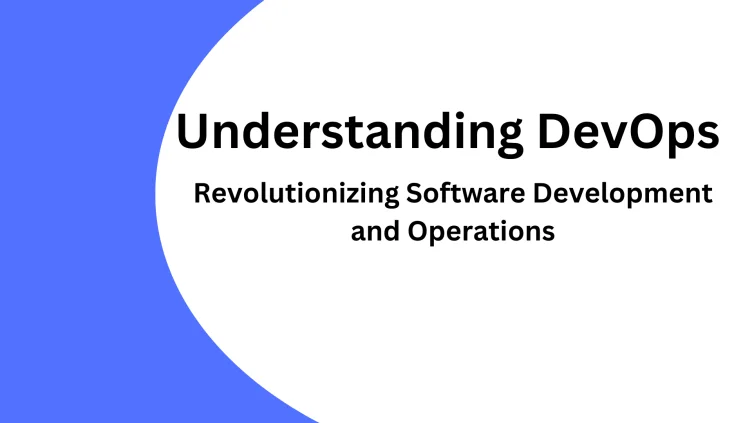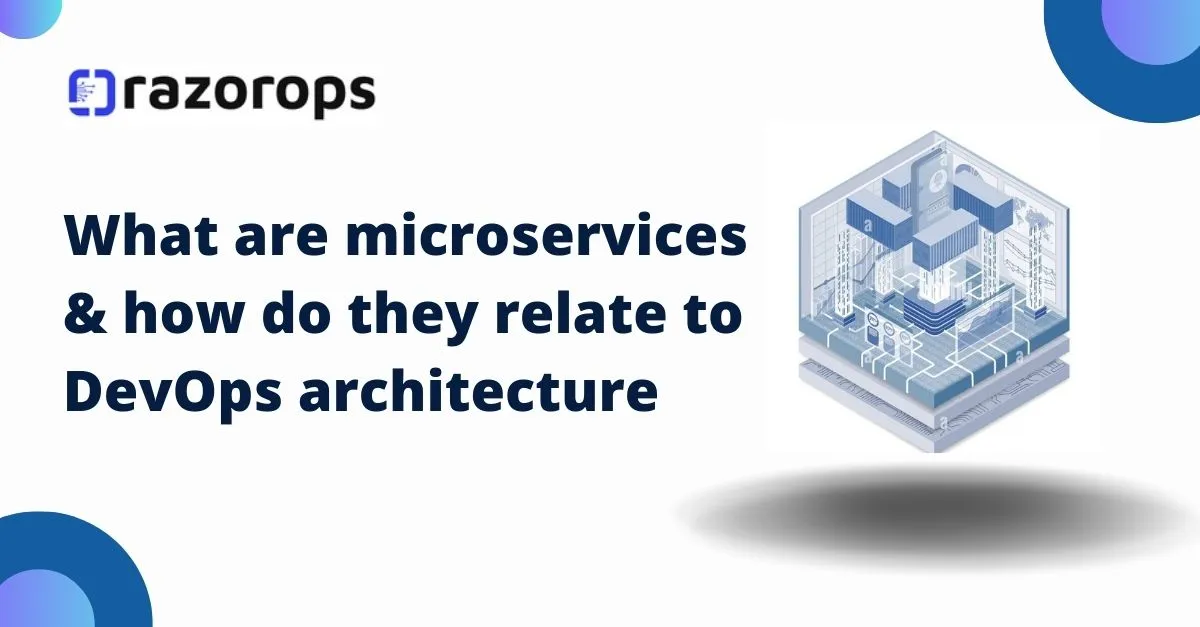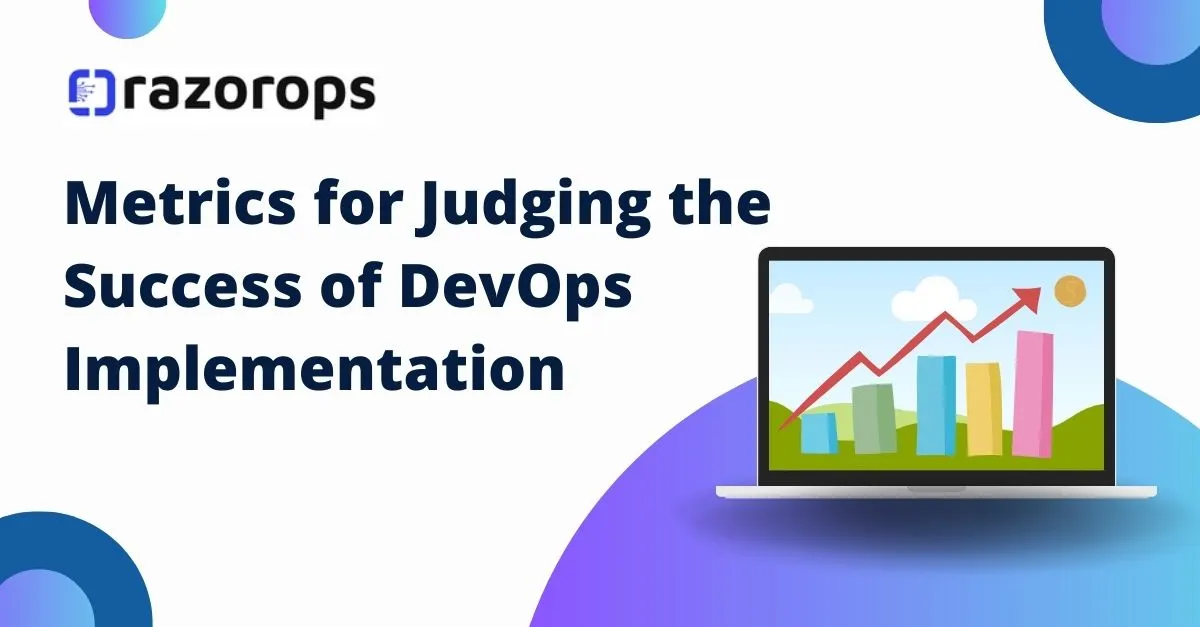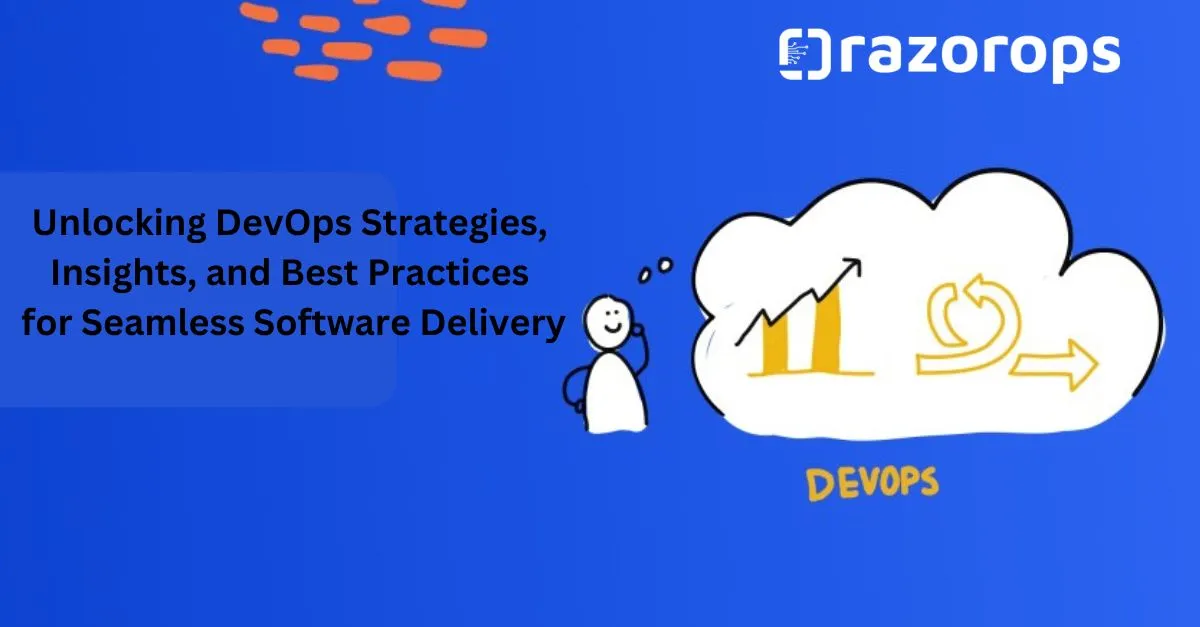Enhancing Collaboration between Development and Operations with DevOps
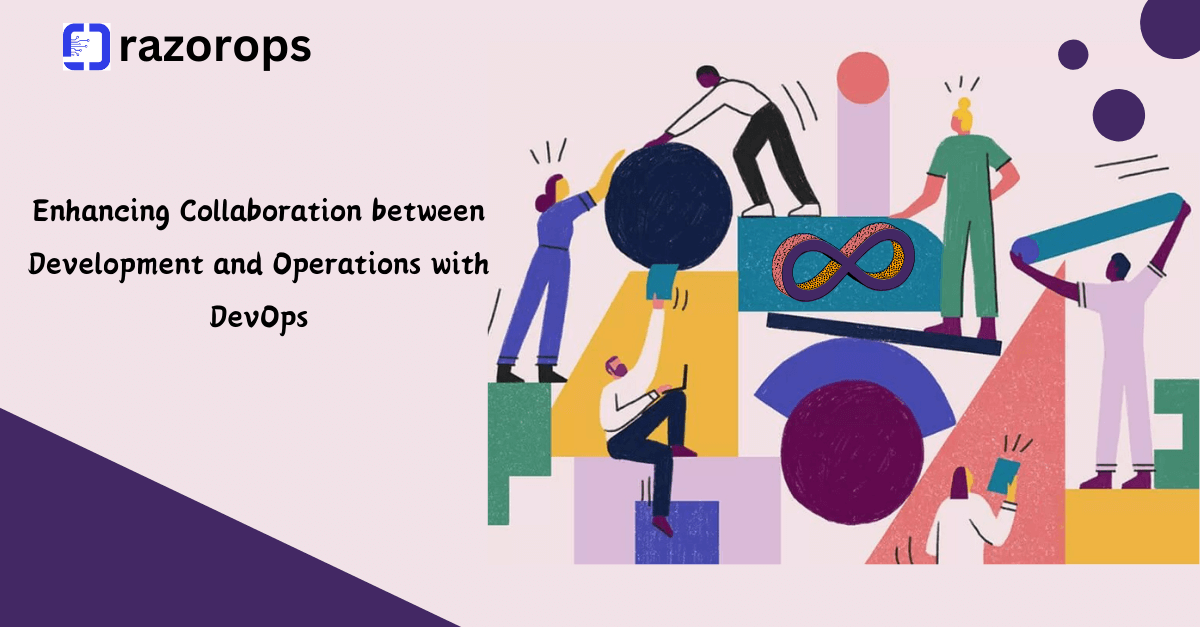
The collaboration between development (Dev) and operations (Ops) teams is crucial for delivering high-quality software products and services efficiently. DevOps has emerged as a transformative approach that bridges the gap between these two traditionally siloed functions, fostering a culture of collaboration, automation, and continuous improvement. In this blog post, we’ll explore how DevOps enhances collaboration between Dev and Ops teams, leading to faster innovation, improved productivity, and better business outcomes.
Understanding DevOps:
DevOps is not just about tools and technologies; it’s a cultural shift that emphasizes collaboration, communication, and shared responsibilities across the software development and IT operations teams. By breaking down silos and encouraging cross-functional collaboration, DevOps enables organizations to streamline workflows, accelerate development cycles, and deliver value to customers more effectively.
Key Principles of DevOps:
-
Collaboration: DevOps promotes close collaboration between Dev and Ops teams, encouraging them to work together from the initial stages of software development to deployment and beyond. This collaboration ensures that both teams understand each other’s goals, challenges, and processes, leading to smoother transitions and faster problem resolution.
-
Automation: Automation is a core principle of DevOps, enabling teams to automate repetitive tasks, streamline processes, and reduce manual errors. By automating deployment, testing, monitoring, and other tasks, DevOps teams can focus on innovation and delivering value to end-users.
-
Continuous Integration and Delivery (CI/CD): DevOps advocates for continuous integration and delivery practices, where code changes are integrated and tested frequently, leading to faster feedback loops and more reliable releases. CI/CD pipelines automate the build, test, and deployment processes, allowing teams to release software updates quickly and reliably.
-
Monitoring and Feedback: DevOps emphasizes continuous monitoring of applications and infrastructure, enabling teams to identify issues proactively, gather feedback from users, and make data-driven improvements. Monitoring tools provide real-time insights into performance, availability, and user experience, helping teams optimize their systems and deliver better outcomes.
Benefits of DevOps Collaboration:
-
Faster Time to Market: By collaborating closely and automating processes, DevOps teams can accelerate development cycles and release new features and updates to customers faster, gaining a competitive edge in the market.
-
Improved Quality and Reliability: DevOps practices such as continuous testing and monitoring lead to higher-quality software with fewer defects, improving customer satisfaction and reducing downtime.
-
Increased Efficiency: Collaboration and automation enable DevOps teams to work more efficiently, focusing on innovation and strategic initiatives rather than manual tasks and firefighting.
-
Enhanced Flexibility and Scalability: DevOps enables organizations to adapt quickly to changing business requirements, scale their infrastructure, and respond to market demands effectively.
Best Practices for Enhancing Collaboration with DevOps:
-
Foster a Culture of Collaboration: Encourage open communication, shared goals, and mutual respect between Dev and Ops teams to foster a collaborative environment.
-
Implement Automation: Leverage automation tools and CI/CD pipelines to automate repetitive tasks, reduce errors, and accelerate delivery cycles.
-
Embrace Continuous Improvement: Encourage a culture of continuous learning, experimentation, and feedback to drive innovation and improve processes continually.
-
Invest in Monitoring and Analytics: Use monitoring tools and analytics to gain insights into application performance, user behavior, and system health, enabling proactive problem-solving and data-driven decision-making.
Culture of Collaboration:
- One of the key principles of DevOps is promoting a culture of collaboration and shared ownership. Dev and Ops teams collaborate right from the planning and design phase to development, testing, deployment, and monitoring. By working together closely, they gain insights into each other’s challenges, leverage collective expertise, and collectively strive towards common goals, such as faster time-to-market, higher reliability, and improved scalability.
Automation and Efficiency:
- DevOps emphasizes automation as a cornerstone for streamlining workflows and eliminating manual interventions wherever possible. Continuous integration (CI) and continuous delivery (CD) pipelines automate the build, test, and deployment processes, reducing errors, and accelerating the release cycles. This automation not only enhances efficiency but also frees up teams to focus on innovation and value-added tasks.
Shared Tools and Technologies:
- DevOps promotes the use of shared tools, platforms, and technologies that facilitate collaboration and standardization across teams. Tools such as version control systems (e.g., Git), configuration management tools (e.g., Ansible, Chef, Puppet), containerization (e.g., Docker, Kubernetes), and monitoring solutions (e.g., Prometheus, Grafana) provide a common framework for Dev and Ops teams to collaborate seamlessly, share code, automate deployments, and monitor performance effectively.
Cross-Functional Skills and Empowerment:
- DevOps encourages cross-functional skills development among team members. Developers gain insights into operations, infrastructure, and deployment practices, while operations teams learn about application development, code repositories, and agile methodologies. This cross-pollination of skills not only breaks down traditional barriers but also empowers individuals to contribute more holistically to the software delivery pipeline.
DevSecOps Integration:
- In addition to collaboration between Dev and Ops, DevOps also integrates security (Sec) into the development and operations processes, leading to the evolution of DevSecOps. By embedding security practices early in the SDLC, teams can identify and mitigate security vulnerabilities proactively, comply with regulatory requirements, and build more resilient and secure systems.
DevOps is not just a set of practices or tools; it’s a cultural shift that promotes collaboration, automation, and continuous improvement across development and operations. By embracing DevOps principles, organizations can enhance collaboration between Dev and Ops teams, accelerate delivery cycles, improve product quality, and ultimately deliver greater value to customers Follow RazorOps Linkedin Page Razorops, Inc.



